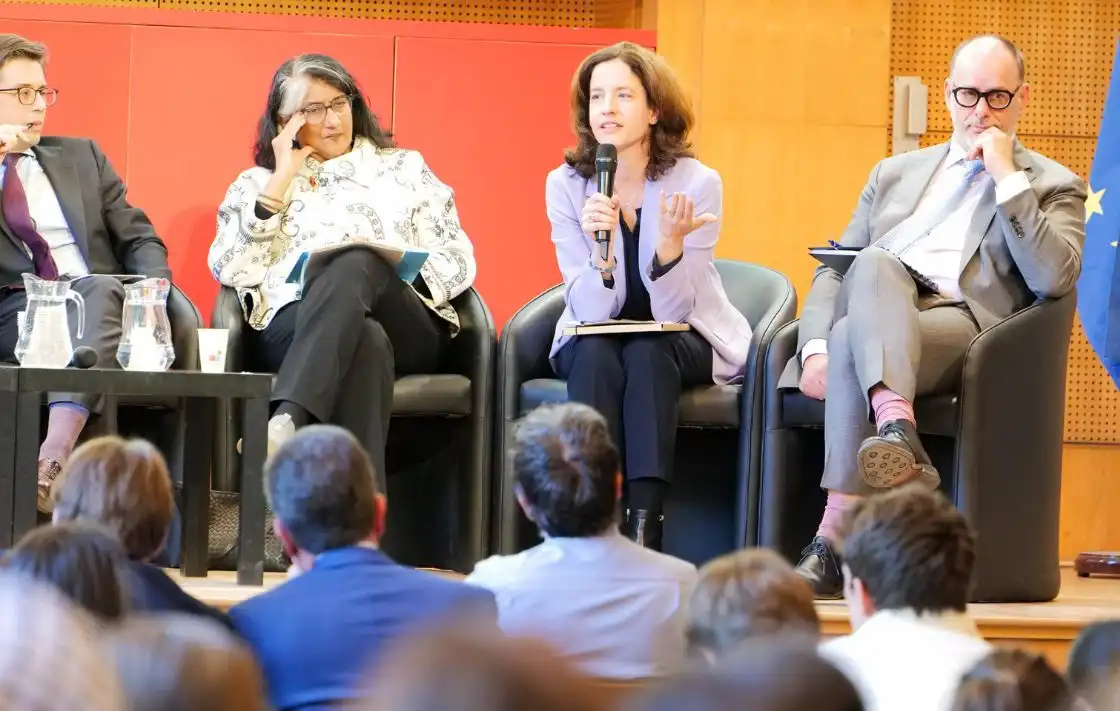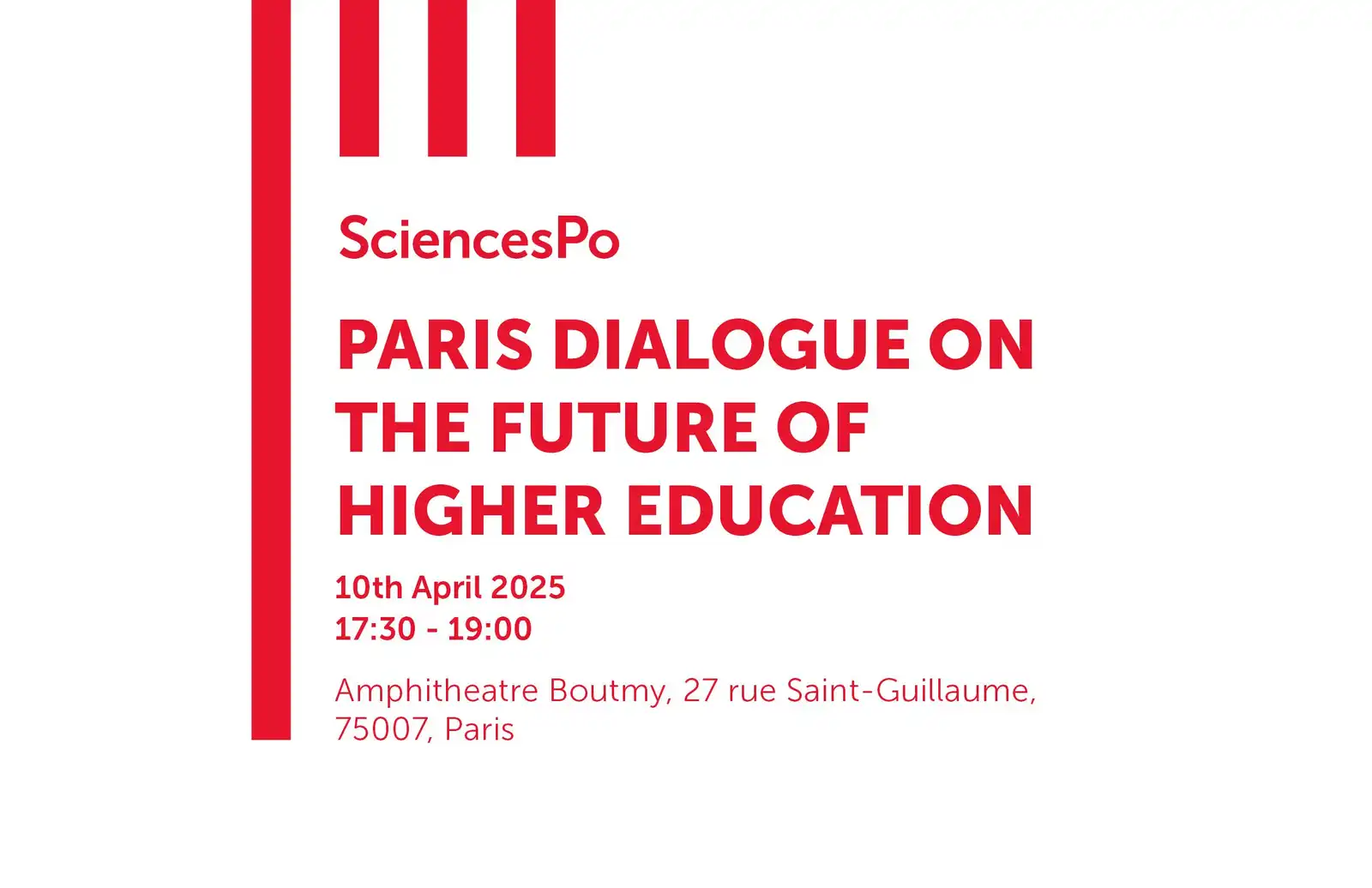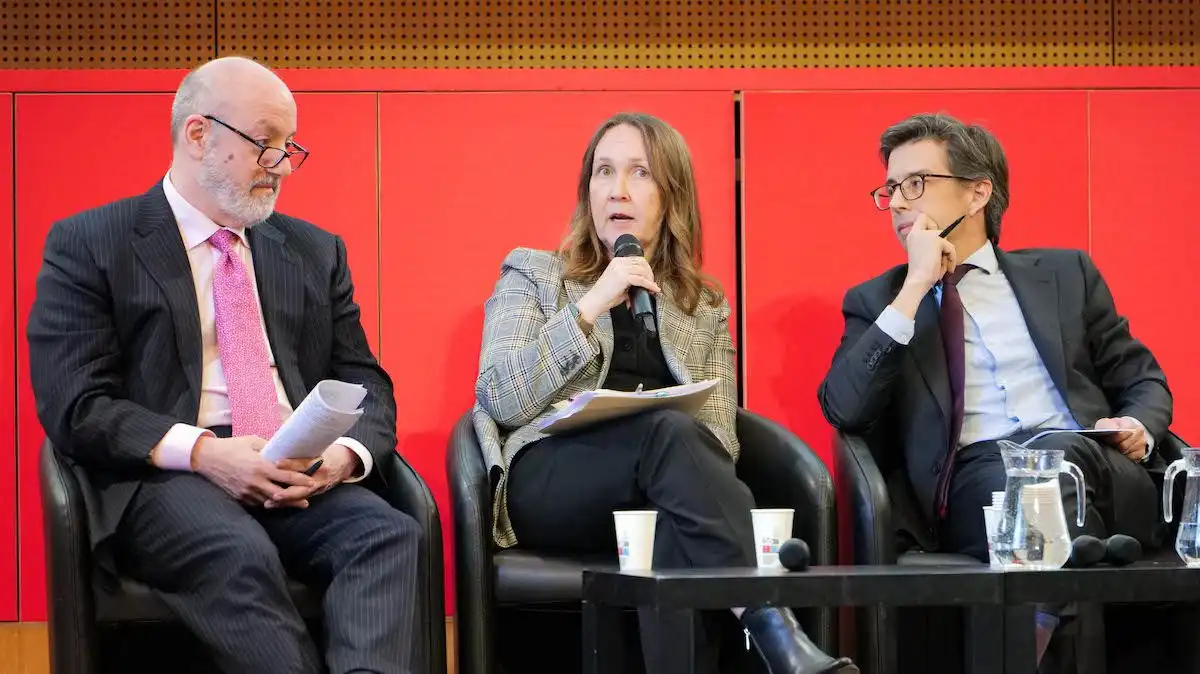Home>Sciences Po hosts the Paris Dialogue on the Future of Higher Education
11.04.2025
Sciences Po hosts the Paris Dialogue on the Future of Higher Education
At a time of rapidly evolving political and geopolitical context, coupled with structural transformations related to new technologies and ecological transition, higher education is at a crossroads.
We are in a historically significant moment for education, a moment to reflect and engage on the role of universities. Over the past year, following 7 October 2023 and the conflict in Gaza, a question has been critical for universities : should we take positions ? How can we protect freedom of expression for our communities (students, professors, researchers) and our core mission of science and knowledge transmission at once ?
Jeremy Perelman, Vice-President for International Affairs, Sciences Po
In response, many leading academic institutions around the world are faced with the need to:
- re-emphasise their foundational role in and value for democratic societies,
- clarify the core principles of academic freedom and freedom of speech within universities,
- defend their economic and institutional models.
To explore these pressing challenges, Sciences Po hosted the first Paris Dialogue on the Future of Higher Education on 10 April.
Following the recent publication of a report and the adoption by Sciences Po of its doctrine on institutional positioning, this first edition closed with a public roundtable on the protection of academic freedoms as a key challenge for the future of higher education, involving presidents and provosts of 5 leading international academic institutions.
I am very grateful for Sciences Po to have initiated this dialogue, because our common mission of producing and disseminating new knowledge relies heavily on collaboration. In recent months, we have faced similar challenges, which makes this discussion particularly valuable. At my own university, our faculty senate adopted a position that prevents the institution from making official statements on political or social issues. My view is that generating new knowledge requires a wide diversity of perspectives, rather than adherence to any form of institutional orthodoxy. Ideas that eventually prove to be true often appear unorthodox – even heretical – at first. This is precisely why it is essential to allow all viewpoints to be expressed. Suppressing ideas hinders scientific progress and the advancement of knowledge.
Jennifer Martinez, Provost, Stanford University
Over the past year, all universities have reached roughly the same conclusion, and I feel quite confident that it is the right position, even though it can be difficult to uphold. At its heart, this position is about preserving everyone’s freedom – the freedom to teach, to learn, to exchange ideas, to express oneself, and to conduct research. If the university, as an institution, adopts an official stance, our scholars and students who hold differing views may find their ability to express those opinions constrained. Universities are a special kind of institution with a unique role in society, and this role must be protected by ensuring the conditions in which our communities can freely exchange ideas and perspectives.
Larry Kramer, President, London School of Economics
In this panel of universities, we find that many of our challenges are shared. We have an educational mission, and we firmly believe that there is nothing more important than this: the task of reinventing leadership – leadership that is responsible and accountable. If you, as students, want to bring about change in the world, if you want to make a real difference, you must be able to share your ideas. Our role – our mission of supreme interest – is to create the processes and conditions that allow you to express your views and share your knowledge. What we produce as universities holds huge value. And the only way to defend that value is to start fighting for our universities with the same urgency and determination we would show in defending any vital asset – one that can be lost or destroyed. We must prevent the destruction of the most precious thing we create: knowledge.
Cornelia Woll, President, Hertie School of Governance
Universities’ involvement in public affairs should be limited to defending academic freedom and upholding the university’s core mission. This creates space within the institution for all viewpoints to be expressed and for all conversations to take place – something that is vital to the health of our academic communities. Academic freedom stands on two pillars: institutional restraint and the protection of free expression for individuals. These two principles go hand in hand, enabling our communities of scholars and students to teach, learn, and conduct research freely.
Daniel Jutras, Rector, University of Montreal
Historically, our university was forced to relocate twice due to autocratic regimes that did not respect academic freedom. We therefore understand the need to protect ourselves from political agendas within our own countries. I think we also need to think about academic freedom internationally : it is our responsibility to safeguard our students and researchers when they are abroad. Academic freedom includes ensuring that our academic communities are free to study and conduct research across borders. One of our students was recently imprisoned in Egypt for social media posts critical of the regime. The university intervened and secured his release, but I fear that in the years ahead, we will see more such cases. We must begin to think and act collectively to develop stronger legal protections for academic freedom on an international scale.
Shalini Randeria, Rector, Central European University
A university is a marketplace of ideas. Ideas must be able to express themselves and circulate freely, to challenge the prevailing consensus and go towards progress. Any stance taken by the institution may have the unintended effect of altering the freedom of expression of those whose opinions diverge from the official line. Protecting academic freedom is essential not only to protect academics or academic institutions but also to guarantee the quality of research, its open, critical inquisitiveness – even when it’s uncomfortable – and the many benefits it brings to society.
Luis Vassy, President, Sciences Po








